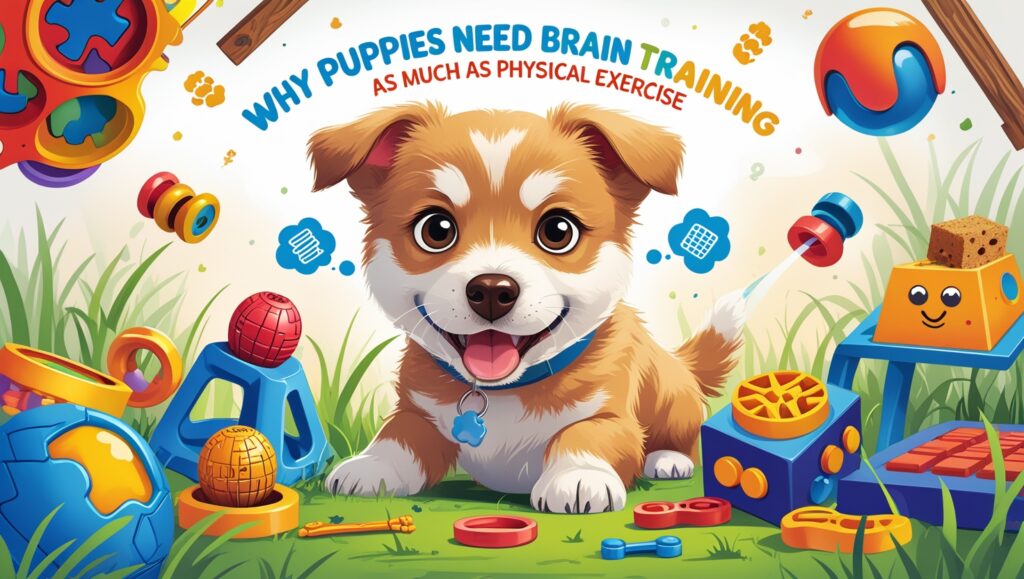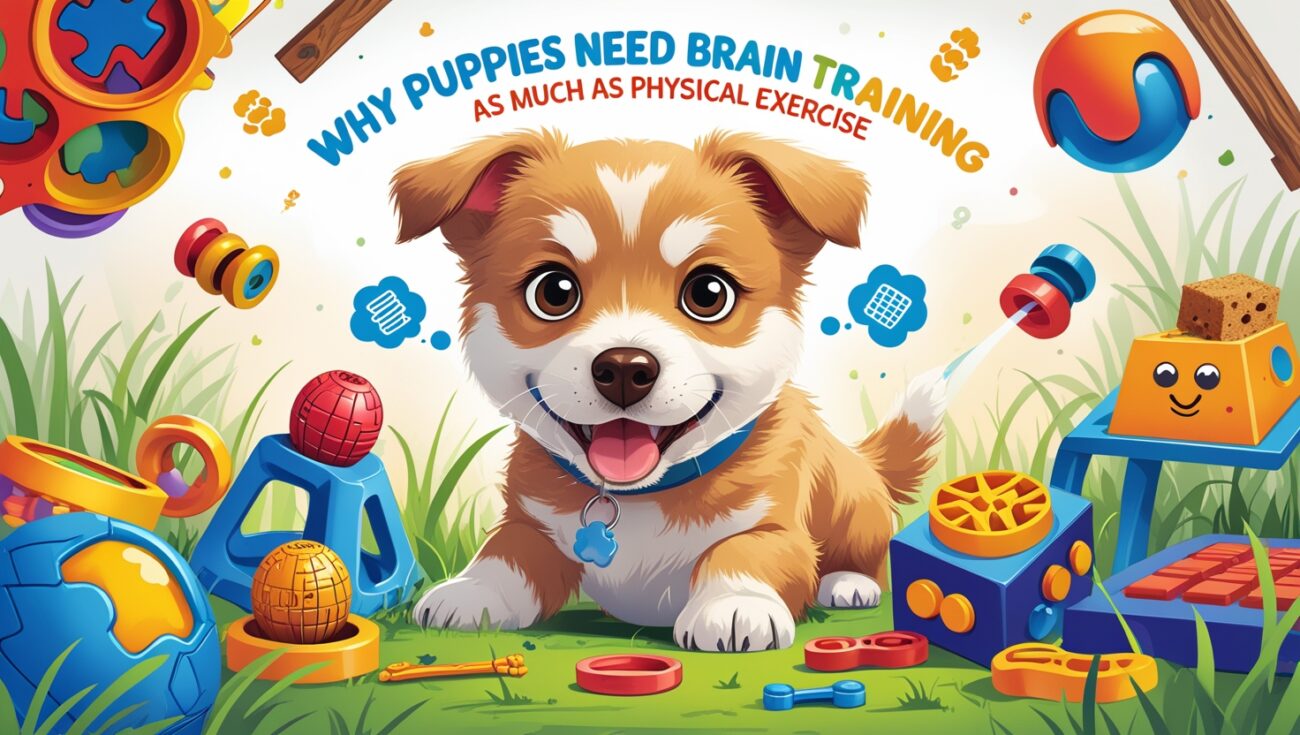Why Puppies Need Brain Training as Much as Physical Exercise
When I first brought my puppy home, I did what most new owners do — focused on giving her lots of physical exercise to wear her out. But no matter how much we played, she still had moments of being wild, mouthy, or hard to settle. What I didn’t realize then was this: puppies need mental stimulation just as much as physical exercise — maybe even more!
In this post, I’ll share exactly why your puppy needs brain training — and how it helps build better behavior, faster learning, and a calmer, happier dog. If you want the full brain training program that helped me, here’s my personal link:
Brain Training for Dogs — Click here to check it out

Table of Contents
Why Brain Training Matters for Puppies
Physical exercise burns energy — but mental exercise builds the skills puppies need to thrive:
- Impulse control
- Focus
- Problem-solving
- Confidence
- Emotional resilience
- Bonding with you
Without mental stimulation, puppies often become over-aroused, frustrated, or develop bad habits — even if they’re getting lots of physical activity.
The Changes I Saw
When I started adding brain training for my puppy:
- Her wild “zoomies” became less intense
- She settled faster after activity
- Her focus during training improved
- Mouthiness and biting decreased
- She became more confident and less frustrated
- Her bond with me got stronger
This is the exact program that helped me bring all of that together:
Brain Training for Dogs — Full Program Here
How to Add Brain Training for Puppies
1. Keep It Short
5–10 minutes of brain games is plenty for young puppies — they tire mentally faster than adults.
2. Focus on Simple Problem-Solving
Easy puzzle toys, beginner scent games, and basic tricks build early confidence and focus.
3. Work on Impulse Control
Games like “leave it,” “wait,” and reward calmness — this helps prevent frustration-based behaviors later on.
4. Make It Fun
The goal is to build joy and motivation — keep sessions upbeat and positive so your puppy loves to learn.
Final Thoughts
If you want your puppy to be calm, confident, and well-behaved — start adding mental stimulation from the beginning.
For us, this was the program that truly made the biggest difference:
Brain Training for Dogs — Click here to check it out
You’ll be amazed how much better your puppy listens, learns, and behaves — when you start adding the right brain training to your daily routine!
Before I really understood how important brain training was, I thought I could tire out my puppy just by playing fetch or going for walks. But no matter how much physical activity we did, she’d still have moments of crazy energy, frustration, and mischief. It wasn’t until I started working her mind that things really began to click.
One of the biggest changes I saw? Once I added brain games, my puppy became so much calmer overall. Instead of constantly looking for ways to burn off excess energy, she was able to settle and relax after just a short session of mental work.
If you want a full plan that teaches you exactly how to add brain training to your puppy’s life, this is the program that worked so well for us:
Brain Training for Dogs — Full Program Here
Another thing I noticed? Focus improved dramatically. Once we added mental games, my puppy could actually concentrate on me during training sessions — instead of bouncing around, easily distracted by every little thing.
And because brain training teaches problem-solving, my puppy became less frustrated — she learned how to think things through instead of just reacting impulsively.
Even short sessions — just 5–10 minutes a few times a day — made a huge difference in her behavior.
I also loved that brain games helped us build a stronger bond. When your puppy is working their brain with you, it creates trust and connection — which makes all other training easier.
For young puppies, brain games are especially important because their brains are like sponges — what they learn now will shape their behavior for life.
And because puppies are constantly learning what works (and what doesn’t), teaching them early focus and impulse control will prevent so many common behavior issues later on.
This is the exact program that gave me step-by-step guidance on how to do it the right way:
Brain Training for Dogs — Full Program Here
Another huge benefit? Confidence. Puppies that do brain games regularly become more confident in new situations — which reduces fear-based behaviors and anxiety.
And because brain training also builds emotional resilience, it helps your puppy handle frustration better — meaning fewer tantrums or over-the-top zoomies.
The more mental work we did, the more my puppy learned how to self-regulate — which meant better behavior both at home and out in public.
And for busy days when I couldn’t do long walks, brain games were the perfect way to help her burn mental energy — leaving her calm and satisfied.
For anyone raising a puppy, I honestly believe mental stimulation is just as important — if not MORE important — than physical exercise in the early months.
And this program will walk you through exactly how to do it — even if your puppy is super young and full of energy:
Brain Training for Dogs — Click here to check it out
You’ll be amazed how quickly your puppy’s focus, confidence, and good behavior will improve — when you start adding simple, fun brain games to your routine!
One of the best things I saw? The more we used brain training, the faster my puppy learned new skills — sit, down, leave it — everything came more easily because her brain was already used to thinking and problem-solving.
If you want to give your puppy that same kind of early learning advantage, this is the exact program that helped us:
Brain Training for Dogs — Full Program Here
And best of all? These brain games aren’t just helpful — they’re FUN. Your puppy will love the challenge, and you’ll love watching them grow more focused, balanced, and happy.
It was honestly one of the best decisions I made for raising a calmer, more well-rounded dog — and I wish I’d started sooner.

